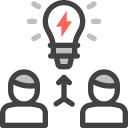
Advanced Digital Literacy Skills: Navigate, Judge, and Create with Confidence
Chosen theme: Advanced Digital Literacy Skills. Explore the mindsets, tools, and habits that help you think critically, protect your privacy, and collaborate effectively online. Subscribe for actionable guides, and share your experiences to help this community grow wiser together.
What Advanced Digital Literacy Really Means Today
Your feed is not a neutral window; it is a mirror tuned by algorithms that reward attention. Notice patterns, compare sources, and ask why certain posts rise. Comment with an example where a recommendation surprised you, and what you changed afterward.


What Advanced Digital Literacy Really Means Today
Terms of service, moderation guidelines, and data broker ecosystems shape what you see and what gets amplified. Understanding these rules sharpens your judgment. If a policy confused you recently, tell us below and we will unpack it in an upcoming guide.



Watch for truncated axes, deceptive baselines, and inconsistent scales. Ask who collected the data, how samples were chosen, and what is omitted. Drop a chart that puzzled you; we will annotate it together and discuss better visual alternatives.

AI and Automation Without the Hype
01
Prompting as a Communication Skill
Great prompts clarify role, goal, tone, constraints, and success criteria. Provide examples and ask for stepwise reasoning. Invite citations and uncertainty estimates. Share a prompt that saved you hours, and we will feature community refinements next week.
02
Model Limits, Hallucinations, and Guardrails
Language models generalize patterns, not truth. They can fabricate sources and plausible details. Add verification steps, require citations, and test edge cases. Tell us when an AI confidently erred on you, and how you redesigned the task to prevent repeats.
03
Responsible Automation in Your Workflow
Use no‑code automation thoughtfully: rate limits, privacy scopes, logs, and human review for sensitive tasks. Build fallbacks and alerts. Share one manual task you could automate responsibly, and we will suggest a safe starter blueprint.
Healthy, Ethical Participation Online
Batch notifications, schedule deep work, and use reading queues. Unfollow accounts that inflame more than inform. One reader halved doomscrolling by switching to summary digests. Share your boundary ritual, and inspire someone to reclaim their evenings.
Healthy, Ethical Participation Online
Practice steel‑manning, cite sources, and ask clarifying questions. Slow the conversation when stakes are high. Establish community norms and uphold them consistently. Post one principle you live by in heated threads; we might turn it into a poster.


Versioned Thinking: Notes, Wikis, and Change Logs
Treat knowledge like code. Keep clean notes, linked decisions, and visible revisions. A small team reduced duplicate work by maintaining weekly change logs. Comment with your favorite tool for living documentation, and why it clicked for your group.
Citations, Links, and Perma‑References
Use stable links, archive pages, and cite original sources. Repair link rot with web archives or DOIs. Model good reference hygiene so others follow. Share a resource you rely on, and we will add a permanent, vetted link in our library.
Community Learning Loops
Post drafts, invite feedback, run small pilots, and publish retrospectives. Learning speeds up when critique is safe and specific. Tell us one habit that improved your team’s learning rate, and join our newsletter for monthly workshop invites.
